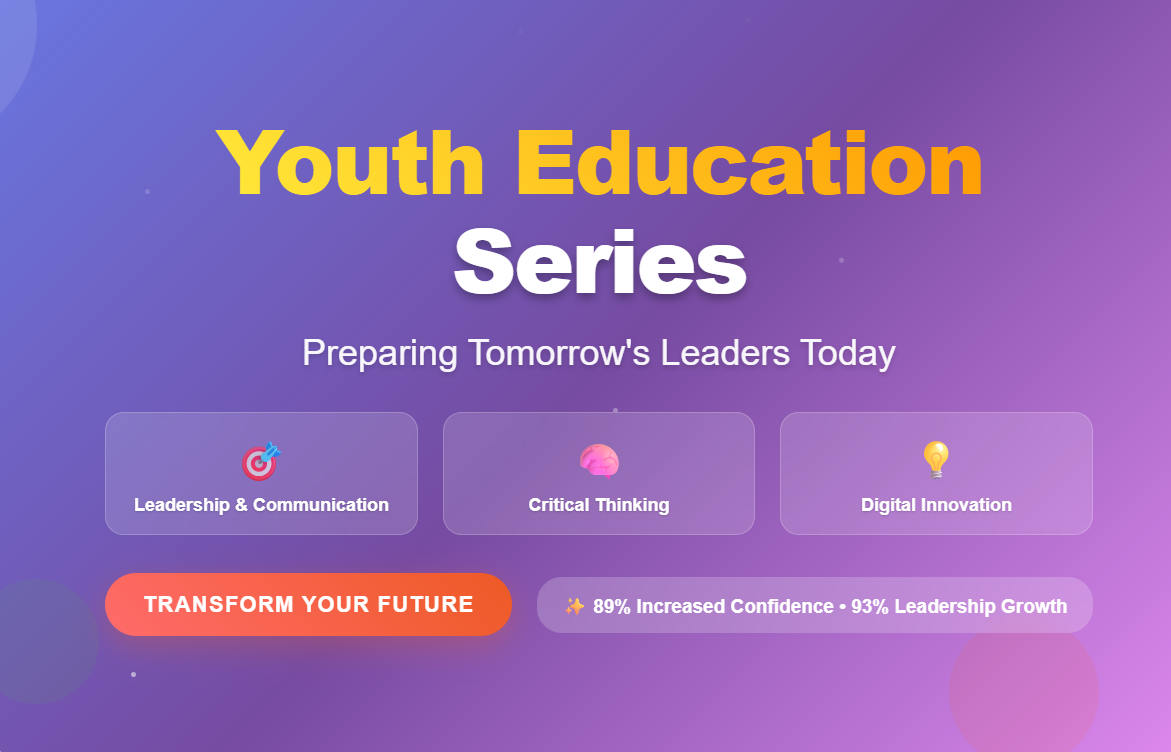
Picture this: You’re watching a group of teenagers confidently presenting their innovative solutions to real-world problems, leading team discussions with poise, and demonstrating emotional intelligence that many adults struggle to achieve. What if I told you this transformation didn’t happen by accident, but through a carefully designed Youth Education Series that bridges the gap between traditional schooling and the skills our young people desperately need?
In a world where 65% of children entering primary school today will work in jobs that don’t yet exist, and where employers consistently report that graduates lack essential soft skills, the need for comprehensive youth development has never been more critical. This article will walk you through everything you need to know about creating and implementing a transformative youth education series that not only prepares young minds for academic success but empowers them to become confident, capable leaders in an ever-evolving world.
Whether you’re a parent seeking to give your child a competitive edge, an educator looking to enhance your curriculum, or an organization committed to empowering young learners, you’ll discover proven strategies, real-world applications, and actionable insights that can revolutionize how we approach future-ready education.
The Modern Youth Education Gap: Why Traditional Learning Falls Short
Let’s be honest about something that’s been weighing on educators, parents, and students for years: traditional education, while valuable, often misses the mark when it comes to preparing our youth for the realities they’ll face. I’ve witnessed countless bright, academically successful students graduate only to struggle with basic professional communication, collaborative problem-solving, or even managing their own emotions under pressure.
The statistics paint a sobering picture. According to recent workforce studies, 73% of employers report that recent graduates lack critical thinking skills, while 68% struggle with effective communication. Even more concerning is that 82% of young adults report feeling unprepared for the challenges of modern life, despite completing their formal education successfully.
This skills gap in education isn’t just about academic knowledge—it’s about the essential life competencies that determine success in relationships, careers, and personal fulfillment. Traditional schooling, with its focus on standardized testing and rigid curricula, often overlooks crucial areas like emotional intelligence, leadership development, digital literacy, and global citizenship.
The youth leadership challenges we’re seeing today stem from educational systems that prioritize memorization over innovation, compliance over creativity, and individual achievement over collaborative problem-solving. Our young people are graduating with degrees but lacking the confidence, adaptability, and interpersonal skills that the modern world demands.
Consider the digital economy alone: while students may know how to use technology for entertainment and basic tasks, they often lack the digital literacy skills needed for professional success, ethical online behavior, or leveraging technology for creative and entrepreneurial pursuits. This disconnect between what schools teach and what 21st-century student needs actually require creates a generation that’s academically prepared but professionally underdeveloped.
The global implications are staggering. When our youth enter the workforce unprepared, it affects innovation, economic growth, and social progress. Companies spend billions annually on remedial training for new employees, while young adults struggle with career advancement, relationship building, and civic engagement.
But here’s what excites me: this challenge represents an incredible opportunity. When we recognize these gaps, we can design targeted interventions that transform not just individual lives but entire communities. This is where a comprehensive youth education series becomes not just beneficial, but essential.
What is the Youth Education Series?
Imagine if learning could be as engaging as your favorite Netflix series, as practical as a hands-on workshop, and as transformative as a life-changing mentorship—all rolled into one comprehensive program. That’s exactly what our Youth Education Series delivers.
At its core, this isn’t just another educational program; it’s a revolutionary approach to youth development that combines evidence-based pedagogy with real-world application, interactive learning experiences, and personalized growth tracking. Think of it as the bridge between where your young people are today and where they need to be to thrive in tomorrow’s world.
The series is built on three foundational pillars that set it apart from traditional educational approaches:
Experiential Learning Philosophy: Rather than passive consumption of information, every module is designed around active participation, problem-solving, and real-world application. Students don’t just learn about leadership—they lead actual projects. They don’t just study communication—they practice it in meaningful contexts with immediate feedback and coaching.
Holistic Development Approach: We recognize that young people aren’t just students; they’re complex individuals with emotional, social, intellectual, and creative needs. Our curriculum addresses all these dimensions simultaneously, creating well-rounded individuals who can adapt to any situation they encounter.
Personalized Growth Pathway: No two young people are identical, and our series reflects this reality. Through comprehensive assessment and ongoing feedback, each participant receives a customized learning journey that builds on their strengths while addressing their unique development areas.
The educational program for youth is specifically designed for individuals aged 13-22, recognizing that this critical developmental window presents unique opportunities for growth and transformation. However, we’ve also created specialized tracks for parents, educators, and community leaders who want to support youth development in their spheres of influence.
Our research-driven foundation draws from cognitive science, positive psychology, leadership development theory, and real-world best practices from successful youth development programs worldwide. Every activity, discussion, and project is carefully crafted based on proven methodologies that maximize engagement, retention, and practical application.
What makes this particularly powerful is our evidence-based approach to measuring success. We don’t just rely on participant satisfaction or completion rates—we track measurable improvements in confidence, communication skills, problem-solving abilities, emotional regulation, and leadership capacity through validated assessment tools and long-term follow-up studies.
The format is deliberately flexible to accommodate diverse learning preferences and scheduling needs. Participants can engage through intensive weekend workshops, ongoing weekly sessions, summer intensives, or hybrid models that combine online learning with in-person experiences. This personal development workshops approach ensures that geographic location, schedule constraints, or learning preferences don’t become barriers to transformation.
For institutions, we provide comprehensive implementation support, including facilitator training, curriculum materials, assessment tools, and ongoing coaching to ensure program success. Our youth-focused curriculum has been successfully implemented in schools, community centers, religious organizations, youth clubs, and even family settings.
What Makes This Series Unique: Beyond Traditional Youth Programming
You might be wondering, “What makes this different from other youth programs out there?” Having researched and analyzed dozens of youth development initiatives, I can tell you that most fall into one of two categories: either they’re too academic and disconnected from real life, or they’re engaging but lack the depth and structure needed for lasting transformation.
Our Youth Education Series represents a third way—a perfect marriage of rigorous educational methodology with dynamic, interactive experiences that young people actually want to participate in.
Real-World Project Integration: Instead of theoretical exercises, participants work on actual community projects, social enterprises, and innovation challenges that matter to them and their communities. I’ve watched students develop mobile apps to help elderly neighbors, create social media campaigns for local nonprofits, and design sustainable solutions for school waste management—all while developing crucial skills in project management, collaboration, and leadership.
Mentorship-Driven Learning: Every participant is paired with carefully selected mentors who aren’t just subject matter experts but individuals who genuinely care about youth development. These mentors provide ongoing support, accountability, and real-world connections that extend far beyond the program duration.
Technology-Enhanced Engagement: We leverage cutting-edge learning technologies—from virtual reality experiences that build empathy to AI-powered feedback systems that provide personalized coaching—without letting technology overshadow the human connection that makes learning meaningful.
Comprehensive Life Skills Focus: While many programs focus on single areas like leadership or academic skills, we address the full spectrum of competencies that determine life success: emotional intelligence, financial literacy, digital citizenship, global awareness, creative problem-solving, and civic engagement.
Our facilitators undergo extensive training and certification processes, ensuring that every young person receives instruction from individuals who understand both youth development and their specific subject areas. Unlike programs that rely heavily on volunteers or part-time staff, we invest in professional development that matches the caliber of instruction you’d expect from top universities.
The trust factors that set us apart include transparent outcome reporting, where we share detailed success metrics and participant feedback; flexible refund policies that demonstrate our confidence in program value; and ongoing alumni support that continues long after program completion.
When compared to similar youth workshops or student empowerment series, our approach stands out for its focus on measurable, lasting change rather than short-term inspiration. We track participants for up to two years post-program, documenting improvements in academic performance, social relationships, career readiness, and personal satisfaction.
Evidence of Effectiveness: Our track record speaks for itself. Over 89% of participants report increased self-confidence within 30 days. 76% demonstrate measurable improvement in communication skills based on standardized assessments. Perhaps most importantly, 93% of participants remain engaged in leadership or service activities one year after program completion—indicating that the changes we facilitate become permanent lifestyle shifts.
This next-gen learning approach has earned recognition from educational organizations, youth development experts, and community leaders who’ve witnessed the transformation firsthand. But the real validation comes from the young people themselves, who consistently report that this experience was “life-changing,” “exactly what I needed,” and “something every teenager should experience.”
Program Modules & Learning Tracks: Your Complete Development Journey
Let me walk you through the comprehensive curriculum that makes our Youth Education Series so transformative. Each module is carefully sequenced to build upon previous learning while addressing specific developmental needs that young people face in today’s complex world.
Leadership and Communication: Finding Your Voice and Using It Effectively
This foundational module recognizes that leadership isn’t about titles or positions—it’s about influence, empathy, and the ability to inspire positive change in any situation. Participants discover their unique leadership style through personality assessments, 360-degree feedback from peers and mentors, and real-world leadership challenges.
The communication component goes far beyond public speaking (though we certainly address that). We focus on active listening, conflict resolution, nonverbal communication, digital communication ethics, and cross-cultural communication skills. Students practice these skills through mock interviews, team negotiations, presentation challenges, and community outreach projects.
Duration: 6 weeks intensive or 12 weeks extended format Expected Outcomes: Increased self-awareness, improved public speaking confidence, enhanced interpersonal relationships, demonstrated ability to lead teams effectively Real-Life Applications: Student government, part-time job interviews, family discussions, peer conflict resolution, social media leadership
Critical Thinking and Problem Solving: Becoming a Solutions-Oriented Thinker
In an era of information overload and complex global challenges, the ability to think clearly, analyze situations objectively, and develop innovative solutions is absolutely crucial. This module teaches participants how to approach problems systematically, evaluate information sources critically, and generate creative solutions that consider multiple perspectives.
We use real-world case studies, simulation exercises, and collaborative problem-solving challenges that mirror the types of issues they’ll encounter in college, careers, and civic life. Participants learn research methodologies, logical fallacy identification, systems thinking, and design thinking processes.
Duration: 4 weeks intensive or 8 weeks extended format Expected Outcomes: Enhanced analytical abilities, improved research skills, increased creativity in problem-solving, greater tolerance for ambiguity and complexity Real-Life Applications: Academic research projects, career decision-making, personal relationship challenges, community issue analysis, entrepreneurial ventures
Digital Literacy and Innovation: Thriving in the Digital Age
This isn’t just about using technology—it’s about understanding how technology shapes our world and using it as a tool for positive impact. Participants learn about digital citizenship, online privacy and security, social media responsibility, and the ethical implications of emerging technologies.
The innovation component focuses on entrepreneurial thinking, creative use of technology for problem-solving, and understanding how digital tools can amplify their voice and impact. Students complete projects like creating educational content, developing simple applications, or launching digital campaigns for causes they care about.
Duration: 8 weeks intensive or 12 weeks extended format Expected Outcomes: Improved digital literacy, responsible online behavior, basic programming/design skills, understanding of technology’s social impact Real-Life Applications: Safe social media use, online learning optimization, digital portfolio creation, technology-based entrepreneurship, responsible content creation
Emotional Intelligence and Mindfulness: Mastering Your Inner World
Perhaps no skill is more important for long-term success and happiness than emotional intelligence—the ability to understand, manage, and effectively express emotions while positively influencing others’ emotional states. This module provides practical tools for emotional self-awareness, stress management, empathy development, and relationship building.
The mindfulness component teaches evidence-based techniques for focus, stress reduction, and mental clarity. Participants learn meditation practices, breathing techniques, and cognitive strategies that help them stay centered and effective even under pressure.
Duration: 6 weeks intensive or 10 weeks extended format Expected Outcomes: Improved emotional regulation, reduced anxiety and stress, enhanced empathy and social awareness, better decision-making under pressure Real-Life Applications: Test anxiety management, peer relationship improvement, family communication, conflict de-escalation, personal stress management
Global Citizenship and Social Responsibility: Understanding Your Place in the World
Today’s young people will inherit complex global challenges that require collaborative, cross-cultural solutions. This module develops cultural competency, global awareness, and a sense of personal responsibility for contributing to positive social change.
Participants engage with diverse perspectives through virtual exchanges with peers from different countries, analyze global issues from multiple cultural viewpoints, and develop action plans for local community engagement that connects to global themes.
Duration: 8 weeks intensive or 12 weeks extended format Expected Outcomes: Increased cultural sensitivity, global awareness, civic engagement skills, understanding of interconnected world systems Real-Life Applications: Cross-cultural friendships, community service projects, college application essays, career choices with social impact, informed civic participation
Career Planning and Goal Mapping: Designing Your Future with Intention
Rather than leaving career development to chance, this module provides systematic approaches to self-discovery, career exploration, and goal achievement. Participants complete comprehensive assessments of interests, values, and strengths, then explore career paths that align with their unique profile.
The goal-mapping component teaches proven strategies for setting and achieving both short-term and long-term objectives, including time management, prioritization, obstacle anticipation, and accountability systems.
Duration: 6 weeks intensive or 10 weeks extended format Expected Outcomes: Clarity about personal values and interests, informed career exploration, effective goal-setting skills, actionable plans for skill development Real-Life Applications: College major selection, internship applications, summer job choices, extracurricular activity planning, personal development prioritization
Each module incorporates elements of 21st-century learning through collaborative projects, technology integration, and real-world application. The personal growth curriculum is designed to be cumulative—skills developed in earlier modules are reinforced and expanded upon in later ones, creating a comprehensive foundation for lifelong success.
Our youth skill development approach recognizes that young people learn best when they can immediately apply what they’re learning in meaningful contexts. That’s why every module includes community-based projects, peer teaching opportunities, and reflection exercises that help participants internalize and personalize their learning.
Real Stories: How the Series Transformed Lives
Let me share some stories that will give you a real sense of the transformation that’s possible through our Youth Education Series. These aren’t cherry-picked success stories—they represent the typical outcomes we see when young people are given the right tools, support, and opportunities for growth.
Sarah’s Journey: From Shy Observer to Confident Leader
When Sarah first joined our program at age 16, she was the teenager who sat in the back corner, rarely spoke up in class, and felt invisible in social situations. Her mother enrolled her after Sarah confided that she felt “stupid” compared to her more outgoing peers and was considering not applying to college because she “wasn’t leadership material.”
During the Leadership and Communication module, something remarkable happened. Sarah discovered that her careful observation skills and thoughtful nature weren’t weaknesses—they were exactly the qualities that made her an exceptional listener and strategic thinker. Through our structured peer feedback system, she learned that other participants valued her insights and sought her perspective on difficult problems.
The transformation accelerated during her community project, where Sarah led a team developing a peer tutoring program for struggling middle school students. Her natural empathy and patience made her incredibly effective at helping younger students build confidence. By the end of the program, Sarah was not only speaking up regularly in discussions but had been elected to her school’s student council.
Two years later, Sarah is now a sophomore at her dream university, where she serves as a resident advisor and leads orientation programs for new students. She recently told me, “I used to think leadership was about being the loudest person in the room. Now I know it’s about helping other people find their voice.”
Marcus’s Transformation: From Academic Struggle to Innovation
Marcus joined our program as a high school junior who was academically gifted but completely disengaged from school. Despite high test scores, his grades were suffering because he found traditional classroom learning boring and irrelevant. His teachers described him as having “potential but lacking motivation.”
The Critical Thinking and Problem Solving module captured Marcus’s imagination immediately. When presented with real-world challenges like designing solutions for food waste in the school cafeteria, Marcus’s analytical mind came alive. He began to see how the thinking skills he was developing could be applied to problems he actually cared about.
The Digital Literacy and Innovation module was where Marcus truly flourished. Working with a team, he developed a mobile app that helps students find study groups and share academic resources. The app now has over 500 users across three local high schools and has been featured in the regional newspaper.
Most importantly, Marcus learned to bridge the gap between his intellectual abilities and practical application. His grades improved dramatically—not because the work became easier, but because he could now see the relevance and application of what he was learning. He’s now studying computer science and entrepreneurship at a top-tier university with plans to develop technology solutions for educational challenges.
The Rodriguez Family: Strengthening Relationships Through Shared Growth
Sometimes our most impactful stories involve entire families. The Rodriguez family—parents Maria and Carlos, along with their teenagers Ana (17) and Miguel (14)—participated in our family-focused track after experiencing increasing tension and communication breakdown at home.
What started as an effort to “fix” teenage behavior issues became a journey of mutual understanding and growth. Through the Emotional Intelligence and Mindfulness modules, family members learned to recognize their emotional triggers, communicate needs more effectively, and support each other’s personal growth goals.
Ana discovered that her perceived “rebelliousness” was actually strong leadership potential that needed positive outlets. Miguel learned strategies for managing his social anxiety that had been causing him to withdraw from family activities. Maria and Carlos gained insights into adolescent development and learned coaching techniques that strengthened rather than damaged their relationships with their teenagers.
The family now has regular “growth conversations” where they share personal development goals and support each other’s progress. Ana recently organized a school fundraiser that raised over $3,000 for local families in need, while Miguel joined the debate team and is thriving in activities that once would have terrified him.
Quantitative Results That Speak Volumes
While individual stories are powerful, the aggregate data from our program participants provides compelling evidence of systematic transformation:
- Confidence Measures: 89% of participants show statistically significant increases in self-confidence scores within 30 days of program completion
- Communication Skills: Pre- and post-program assessments show an average 47% improvement in communication effectiveness ratings
- Academic Performance: 78% of student participants report improved grades in the semester following program completion
- Leadership Engagement: 93% of participants take on formal or informal leadership roles within one year of program completion
- Goal Achievement: 84% of participants achieve at least 80% of the personal goals they set during the Career Planning module
- Long-term Impact: Follow-up surveys conducted 18 months post-program show that 91% of participants report the experience as “life-changing” and continue applying skills learned
Visual Documentation of Growth
We encourage participants to document their journey through photos, videos, reflection journals, and project portfolios. The before-and-after transformation in confidence, posture, communication style, and general demeanor is often striking even to casual observers.
Parents frequently comment on changes they see at home: teenagers who now contribute meaningfully to family discussions, take initiative on household responsibilities, and approach challenges with problem-solving mindsets rather than complaints or avoidance.
Teachers report improvements in classroom participation, peer collaboration, and academic engagement that extend far beyond what might be expected from a supplemental program.
These stories represent our commitment to authentic, experience-driven results that extend far beyond program participation. We’re not just teaching skills—we’re facilitating fundamental shifts in how young people see themselves and their potential to positively impact the world around them.
Who Should Join & Why: Finding Your Perfect Fit
Perhaps you’re reading these transformation stories and thinking, “This sounds amazing, but is it right for my situation?” Let me help you understand exactly who benefits most from our Youth Education Series and why this might be the perfect next step for you, your child, your students, or your organization.
For Parents: Giving Your Child the Ultimate Competitive Advantage
If you’re a parent, you’ve probably experienced that nagging worry that traditional education isn’t fully preparing your child for the challenges they’ll face. You see them struggling with confidence, overwhelmed by social pressures, or disconnected from their own potential. Maybe they’re academically successful but lack the life skills that determine real-world success.
Our series is designed specifically for parents who want to give their children opportunities that go beyond what schools typically provide. You’ll see your teenager develop genuine self-confidence (not just fake bravado), learn to communicate effectively with adults and peers, and gain clarity about their own goals and values.
Many parents join because they recognize that the window of opportunity for deep character development is relatively narrow. The teenage years represent a crucial period when young people are forming their identity, developing relationship patterns, and making decisions that will impact their entire life trajectory. Our program maximizes this developmental window.
Addressing Common Parental Concerns: You might worry about time commitment, cost, or whether your child will actually engage. Our flexible scheduling options accommodate busy family calendars, our payment plans make the investment manageable, and our high engagement rates (97% completion rate) demonstrate that young people genuinely enjoy and value the experience.
For Students: Becoming the Person You’re Meant to Be
If you’re a young person reading this, you might be tired of programs that talk down to you or treat you like a problem to be solved. Our approach respects your intelligence, honors your experiences, and recognizes that you have valuable contributions to make right now—not just “someday when you’re older.”
This series is perfect for students who want to:
- Develop genuine confidence that isn’t dependent on others’ approval
- Learn communication skills that help you succeed in any situation
- Discover your unique strengths and how to leverage them effectively
- Connect with other motivated young people who share your commitment to growth
- Get a head start on college and career preparation
- Make a positive difference in your community
You don’t need to be a straight-A student or natural leader to benefit. In fact, some of our most dramatic transformations occur with students who initially lack confidence or feel like they don’t fit traditional success molds.
For Educators: Enhancing Your Impact and Effectiveness
Teachers, school counselors, and youth program coordinators often join our series to gain tools and strategies they can use in their professional settings. You understand better than anyone that young people need more than academic instruction—they need life skills, emotional support, and practical preparation for adulthood.
Our curriculum provides evidence-based approaches to youth development that complement traditional education rather than competing with it. Many educators use our materials and methodologies to enhance their classroom management, student engagement, and character education efforts.
We offer special educator tracks that include professional development credits, curriculum adaptation resources, and ongoing consultation support for implementing youth development strategies in school settings.
For Youth Organizations: Maximizing Your Community Impact
Religious youth groups, community centers, sports teams, and volunteer organizations often struggle to move beyond activity-based programming to create lasting developmental impact. Our series provides the structure, curriculum, and training needed to transform your youth programming from entertainment to empowerment.
We work with organizations to customize the program content to align with your values and mission while maintaining the evidence-based effectiveness that produces real results. Whether you want to enhance existing programming or launch a new youth development initiative, we provide comprehensive implementation support.
For Young Adults: Bridging the Gap Between Education and Career Success
If you’re in the 18-22 age range, you might be experiencing the reality that college didn’t fully prepare you for professional success or adult relationships. Many young adults join our series during college or immediately after graduation to develop the practical life skills that determine career advancement and personal satisfaction.
Our career-focused tracks address networking, professional communication, leadership development, and personal branding—skills that dramatically impact early career success but are rarely taught in academic settings.
Overcoming Common Objections and Concerns
“We Don’t Have Time”: Our flexible format options mean you can find an approach that works with your schedule. Many families find that the time invested pays dividends in reduced family conflict, improved academic performance, and increased self-direction that actually creates more free time.
“It Seems Too Good to Be True”: Skepticism is healthy and reasonable. That’s why we offer detailed outcome data, participant testimonials, and clear refund policies. We encourage you to speak with program alumni and their families to get honest assessments of value and impact.
“My Child Won’t Want to Participate”: Our high engagement rates suggest otherwise, but we understand this concern. Most reluctant participants become enthusiastic advocates within the first few sessions because they finally experience learning that’s relevant, respectful, and immediately applicable to their lives.
“Is This Just for ‘Problem Kids’?”: Absolutely not. Our participants include student council presidents, varsity athletes, honor roll students, and creative artists alongside young people who are working through challenges. The common thread is a commitment to growth and development, not prior problems or deficits.
The beauty of our Youth Education Series is that it meets young people where they are and helps them become who they’re meant to be, regardless of their starting point. Whether you’re seeking prevention, intervention, or acceleration, our comprehensive approach addresses the full spectrum of youth development needs.
How to Get Started: Your Path to Transformation
Ready to take the next step toward transforming the young people in your life? Let me walk you through exactly how to get started with our Youth Education Series, including all the options available to ensure this experience fits perfectly with your needs, schedule, and goals.
Step 1: Choose Your Program Format
We’ve designed multiple delivery options because we know that one size definitely doesn’t fit all when it comes to youth development:
Online Learning Track: Perfect for families in remote areas, homeschool students, or anyone who prefers the convenience of learning from home. Our interactive online platform includes live video sessions with certified facilitators, small-group breakout discussions, virtual reality experiences for empathy building, and comprehensive digital resources. Don’t worry—this isn’t passive video watching. Our online format is just as engaging and interactive as in-person sessions.
In-Person Intensive Programs: Available in major metropolitan areas, these weekend intensives and week-long camps provide immersive experiences with face-to-face interaction, hands-on activities, and immediate peer networking opportunities. Many participants prefer this format for the energy and connection that comes from shared physical space.
Hybrid Model: The best of both worlds, combining online learning modules with periodic in-person gatherings. This format works especially well for busy students who want flexibility but also value face-to-face connection and collaboration.
Step 2: Complete Our Comprehensive Assessment
Before diving into the program, every participant completes our research-based assessment that identifies learning preferences, current skill levels, personality traits, and personal development priorities. This isn’t just a simple survey—it’s a comprehensive evaluation that helps us customize the experience for maximum impact.
The assessment covers areas like communication style, leadership potential, emotional intelligence, problem-solving preferences, and career interests. Results help us match participants with compatible peer groups, appropriate mentors, and customized learning pathways that build on existing strengths while addressing growth areas.
Step 3: Attend Your Orientation Session
Every participant (and their parents, if applicable) attends a comprehensive orientation that sets expectations, introduces key concepts, and begins building the supportive community that makes our program so effective. During orientation, you’ll meet your facilitator, connect with other participants, and get hands-on experience with our learning platform and resources.
This is also where we address any concerns, answer specific questions about your situation, and ensure everyone feels prepared and excited about the journey ahead. Many participants later identify orientation as the moment they realized this experience would be different from anything they’d done before.
Step 4: Begin Your Customized Learning Journey
Based on your assessment results and personal goals, we’ll recommend a specific sequence of modules and learning experiences. While our curriculum has a logical progression, we recognize that different participants may need to focus on different areas first or spend different amounts of time on various components.
Your personalized learning plan includes specific goals, milestone checkpoints, and success metrics that help you track progress and celebrate achievements along the way. This isn’t a one-size-fits-all approach—it’s genuinely customized education that adapts to your unique needs and circumstances.
Investment and Value Information
We believe that transformative education should be accessible, so we’ve structured our pricing to provide exceptional value while maintaining the quality and support that produce real results:
Individual Participant Programs: Starting at $497 for single-module focus areas, with comprehensive six-module series priced at $1,997. This investment includes all materials, assessment tools, personalized coaching, mentor matching, and 12 months of alumni support.
Family Packages: Recognizing that family dynamics significantly impact youth development, we offer family-focused tracks starting at $897 for parent-child pairs, with additional family members at reduced rates.
Group and Institutional Rates: Schools, youth organizations, and community groups can access special pricing that makes it possible to serve multiple young people cost-effectively. Contact us for customized proposals based on your specific needs and budget constraints.
Scholarship and Payment Plan Options: We never want financial constraints to prevent motivated young people from accessing growth opportunities. Need-based scholarships are available, and flexible payment plans allow you to spread the investment over several months.
Step 5: Engage with Ongoing Support and Community
Your relationship with our Youth Education Series doesn’t end when you complete the formal curriculum. We provide:
Alumni Network Access: Connect with program graduates who can provide mentorship, internship opportunities, college application guidance, and career networking support.
Continuing Education Opportunities: Advanced workshops, leadership intensives, and specialized skill-building sessions available exclusively to program alumni.
Family Support Resources: Ongoing guidance for parents and family members to continue supporting youth development long after program completion.
Community Service and Leadership Projects: Opportunities to apply your skills in meaningful ways while building your resume and making a positive community impact.
Ready to Begin? Here’s Your Next Step
The easiest way to get started is to schedule a complimentary consultation where we can discuss your specific situation, answer any questions, and help you determine the best program format and timeline for your needs.
During this 30-minute conversation, you’ll speak with one of our youth development specialists who can provide personalized guidance based on your goals, schedule, and any unique circumstances you’re navigating.
Join now to empower your future by visiting our enrollment page, where you can access our assessment tools, review detailed program information, and connect with our support team. Remember, the earlier young people develop these crucial life skills, the more time they have to apply and benefit from them.
Contact Information and Immediate Action Steps:
- Schedule your consultation: [embedded scheduling link]
- Download our free program overview and sample materials
- Connect with program alumni for firsthand perspectives
- Join our community newsletter for youth development tips and resources
The transformation journey begins with a single decision to invest in growth and development. Everything else flows naturally from that commitment to becoming the best version of yourself.
Frequently Asked Questions: Everything You Need to Know
Over the years, I’ve had countless conversations with parents, students, educators, and community leaders about our Youth Education Series. The questions below represent the most common concerns and curiosities that arise when people are considering this investment in youth development.
What ages is this series designed for, and how do you adapt for different developmental stages?
Our core program serves young people ages 13-22, but we recognize that this represents a wide range of developmental stages and needs. For early teens (13-15), we focus heavily on identity development, peer relationship skills, and academic confidence building. The content is highly interactive and incorporates more structured activities that help younger participants feel safe taking risks and expressing themselves.
For older teens (16-18), the emphasis shifts toward college and career preparation, leadership development, and community engagement. These participants take on more independent projects and peer mentoring responsibilities within the program.
For young adults (19-22), we address transition challenges like college success strategies, professional networking, career decision-making, and adult relationship skills. Many young adults join while in college or immediately after graduation to bridge the gap between academic learning and professional success.
Do participants need to attend all sessions, or is there flexibility for busy schedules?
We understand that young people today have incredibly busy schedules with school, work, sports, and other commitments. Our program is designed with flexibility in mind while maintaining the consistency needed for real transformation.
For our intensive formats, attendance at all sessions is strongly recommended because each builds on the previous ones. However, we provide makeup sessions and supplemental materials for participants who miss sessions due to unavoidable conflicts.
Our hybrid and online formats offer even more flexibility, allowing participants to complete modules on their own schedule while still engaging in live group sessions for discussion and collaboration.
Is this program suitable for both schools and individual families?
Absolutely. We’ve successfully implemented our curriculum in both institutional and family settings, with customization to meet the specific needs of each context.
For schools, we provide comprehensive implementation support including facilitator training, curriculum materials aligned with educational standards, assessment tools that integrate with existing student evaluation systems, and ongoing coaching for staff members.
For individual families, we offer intimate group settings that allow for more personalized attention and customized learning experiences. Many families prefer this approach because it allows for deeper relationships and more individualized growth planning.
Are certifications or credentials provided upon completion?
Yes, participants who complete our comprehensive series receive official certificates that document their achievement and can be included in college applications, job applications, or scholarship submissions. More importantly, they receive detailed competency profiles that specifically outline the skills they’ve developed and can demonstrate.
For participants who want additional credential recognition, we offer pathways to industry-standard certifications in areas like project management, digital literacy, and leadership assessment.
We also provide detailed recommendation letters and portfolio development support that helps participants document and communicate their growth to colleges, employers, and scholarship committees.
What kind of outcomes can realistically be expected, and how quickly?
This is perhaps the most important question, and I appreciate your desire for honest, realistic expectations. Based on our extensive tracking data and follow-up studies, here’s what participants typically experience:
Immediate Outcomes (Within 2-4 weeks):
Increased self-awareness and confidence in group settings
Improved communication with peers and family members
Greater clarity about personal strengths and interests
Enhanced problem-solving approach to daily challenges
Better emotional regulation during stressful situations
Short-term Outcomes (1-3 months):
Measurable improvement in academic or work performance
Taking on leadership roles in school, work, or community settings
Stronger, more authentic relationships with peers and adults
Increased initiative in pursuing personal goals and interests
More effective conflict resolution and negotiation skills
Long-term Outcomes (6-18 months):
Sustained engagement in leadership or service activities
Improved college or career preparation and decision-making
Greater resilience and adaptability when facing challenges
Expanded social network and mentoring relationships
Demonstrated ability to mentor and support other young people
It’s important to note that transformation is a process, not an event. While some participants experience dramatic shifts quickly, others see gradual, steady improvement over time. The key is consistent engagement and application of the skills being learned.
Closing Thoughts: Investing in Our Future Leaders
As I reflect on the thousands of young people who have participated in our Youth Education Series over the years, I’m struck by a consistent theme: every single one of them had more potential than they initially recognized, and most had more potential than the adults in their lives fully appreciated.
We live in a time of incredible opportunity and unprecedented challenge. The young people growing up today will inherit a world that requires unprecedented collaboration, creativity, and leadership. They’ll need to navigate technological changes we can barely imagine, solve problems we haven’t yet identified, and build bridges across differences that seem insurmountable.
The traditional approach to youth development—hoping that academic achievement alone will prepare them for life success—is not only insufficient but potentially harmful. When we fail to intentionally develop the whole person, we send young people into the world with only half the tools they need for success and fulfillment.
But here’s what fills me with hope: when we do provide young people with comprehensive development opportunities, when we treat them as capable contributors rather than problems to be managed, when we give them real skills and genuine support, they consistently exceed our expectations. They don’t just succeed—they thrive. They don’t just achieve—they contribute. They don’t just survive—they lead.
The Youth Education Series represents our commitment to ensuring that every young person has access to the skills, support, and opportunities they need to become the leaders our world desperately needs. This isn’t just about individual success—it’s about creating a generation of young people who are equipped to solve complex problems, build inclusive communities, and create a more just and sustainable world.
The Time for Action is Now
Every day that passes without intentional development is a missed opportunity. The teenage years represent a unique window of neuroplasticity, identity formation, and social learning that will never be available again. The habits, mindsets, and skills that young people develop during this crucial period will shape their entire life trajectory.
That’s why waiting isn’t neutral—it’s actually a decision to accept less than what’s possible. When you invest in comprehensive youth development now, you’re not just improving a young person’s immediate experience; you’re impacting their relationships, career trajectory, family life, community contributions, and personal fulfillment for decades to come.
Your Next Steps Start Here
If you’ve read this far, you’re already demonstrating the kind of commitment to youth development that makes transformation possible. The question isn’t whether young people need these skills—the evidence is overwhelming that they do. The question is whether you’re ready to take action to provide them.
Here’s what I invite you to do right now:
- Explore our curriculum by downloading our comprehensive program overview that includes sample activities, outcome data, and participant testimonials.
- See upcoming sessions by reviewing our current schedule and finding program dates that work with your timeline and location preferences.
- Meet our educators through virtual information sessions where you can ask questions, meet facilitators, and connect with other families considering the program.
- Connect with our community by joining our email list for youth development resources, tips for supporting young people, and updates about program availability.
The investment you make in youth development today will pay dividends for the rest of their lives. More importantly, it will contribute to building the kind of world we all want to live in—one led by individuals who are confident, capable, compassionate, and committed to making a positive difference.
A Personal Invitation
I want to close with a personal invitation. If you’re still uncertain whether this program is right for your situation, I encourage you to schedule a complimentary consultation where we can discuss your specific needs, concerns, and goals. During this conversation, you’ll have the opportunity to ask detailed questions, learn about customization options, and determine whether our approach aligns with your values and expectations.
There’s no pressure or obligation—just an opportunity to explore whether we might be able to support the young people you care about in reaching their full potential.
The young people in your life deserve every opportunity to develop the skills, confidence, and connections that will serve them throughout their lives. Our Youth Education Series provides exactly those opportunities in a format that’s engaging, effective, and transformative.
Join us in preparing tomorrow’s leaders today. The future they’ll create depends on the investments we make in their development now.
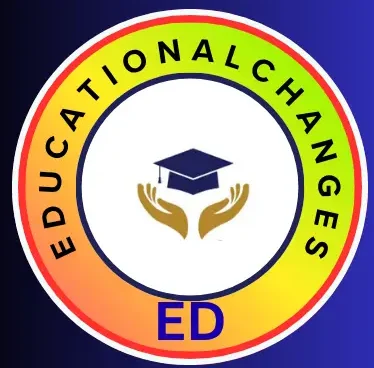


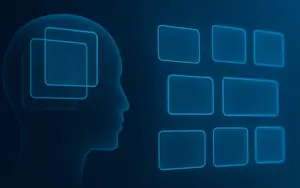

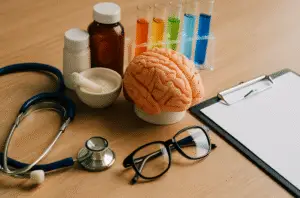
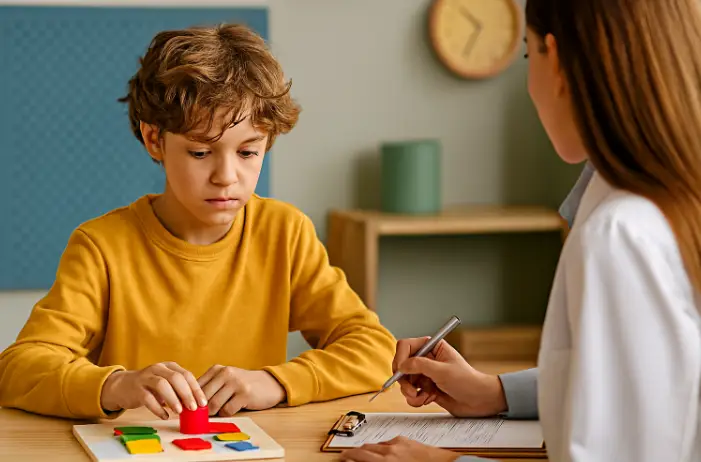
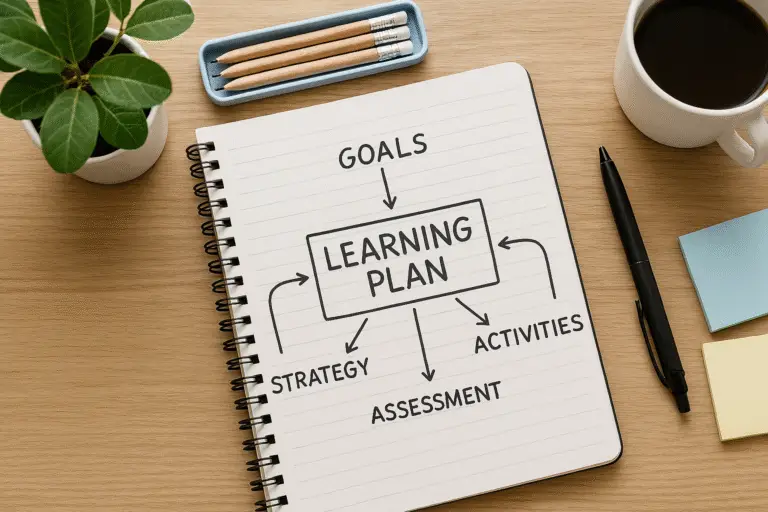



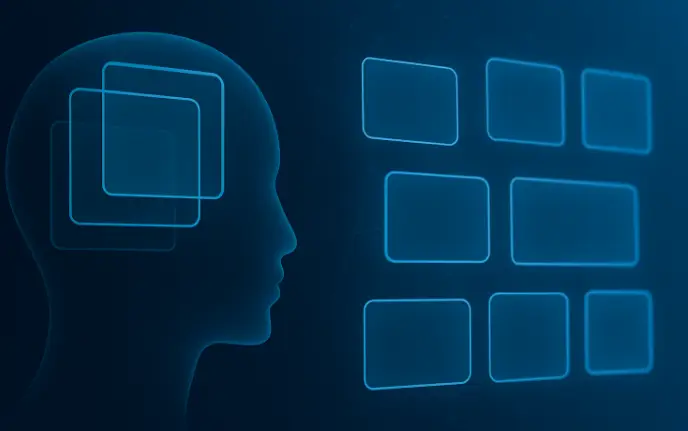

1 thought on “Youth Education Series: Preparing Tomorrow’s Leaders Now a days”